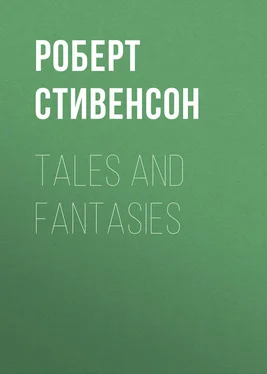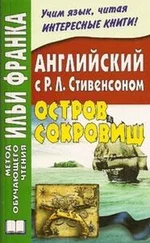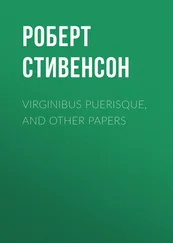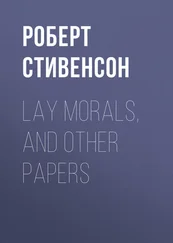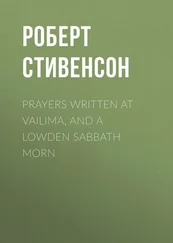Роберт Стивенсон - Tales and Fantasies
Здесь есть возможность читать онлайн «Роберт Стивенсон - Tales and Fantasies» — ознакомительный отрывок электронной книги совершенно бесплатно, а после прочтения отрывка купить полную версию. В некоторых случаях можно слушать аудио, скачать через торрент в формате fb2 и присутствует краткое содержание. Жанр: literature_19, foreign_antique, foreign_prose, на английском языке. Описание произведения, (предисловие) а так же отзывы посетителей доступны на портале библиотеки ЛибКат.
- Название:Tales and Fantasies
- Автор:
- Жанр:
- Год:неизвестен
- ISBN:нет данных
- Рейтинг книги:4 / 5. Голосов: 1
-
Избранное:Добавить в избранное
- Отзывы:
-
Ваша оценка:
- 80
- 1
- 2
- 3
- 4
- 5
Tales and Fantasies: краткое содержание, описание и аннотация
Предлагаем к чтению аннотацию, описание, краткое содержание или предисловие (зависит от того, что написал сам автор книги «Tales and Fantasies»). Если вы не нашли необходимую информацию о книге — напишите в комментариях, мы постараемся отыскать её.
Tales and Fantasies — читать онлайн ознакомительный отрывок
Ниже представлен текст книги, разбитый по страницам. Система сохранения места последней прочитанной страницы, позволяет с удобством читать онлайн бесплатно книгу «Tales and Fantasies», без необходимости каждый раз заново искать на чём Вы остановились. Поставьте закладку, и сможете в любой момент перейти на страницу, на которой закончили чтение.
Интервал:
Закладка:
Robert Louis Stevenson
Tales and Fantasies
THE MISADVENTURES OF JOHN NICHOLSON
CHAPTER I – IN WHICH JOHN SOWS THE WIND
John Varey Nicholson was stupid; yet, stupider men than he are now sprawling in Parliament, and lauding themselves as the authors of their own distinction. He was of a fat habit, even from boyhood, and inclined to a cheerful and cursory reading of the face of life; and possibly this attitude of mind was the original cause of his misfortunes. Beyond this hint philosophy is silent on his career, and superstition steps in with the more ready explanation that he was detested of the gods.
His father – that iron gentleman – had long ago enthroned himself on the heights of the Disruption Principles. What these are (and in spite of their grim name they are quite innocent) no array of terms would render thinkable to the merely English intelligence; but to the Scot they often prove unctuously nourishing, and Mr. Nicholson found in them the milk of lions. About the period when the churches convene at Edinburgh in their annual assemblies, he was to be seen descending the Mound in the company of divers red-headed clergymen: these voluble, he only contributing oracular nods, brief negatives, and the austere spectacle of his stretched upper lip. The names of Candlish and Begg were frequent in these interviews, and occasionally the talk ran on the Residuary Establishment and the doings of one Lee. A stranger to the tight little theological kingdom of Scotland might have listened and gathered literally nothing. And Mr. Nicholson (who was not a dull man) knew this, and raged at it. He knew there was a vast world outside, to whom Disruption Principles were as the chatter of tree-top apes; the paper brought him chill whiffs from it; he had met Englishmen who had asked lightly if he did not belong to the Church of Scotland, and then had failed to be much interested by his elucidation of that nice point; it was an evil, wild, rebellious world, lying sunk in dozenedness , for nothing short of a Scots word will paint this Scotsman’s feelings. And when he entered into his own house in Randolph Crescent (south side), and shut the door behind him, his heart swelled with security. Here, at least, was a citadel impregnable by right-hand defections or left-hand extremes. Here was a family where prayers came at the same hour, where the Sabbath literature was unimpeachably selected, where the guest who should have leaned to any false opinion was instantly set down, and over which there reigned all week, and grew denser on Sundays, a silence that was agreeable to his ear, and a gloom that he found comfortable.
Mrs. Nicholson had died about thirty, and left him with three children: a daughter two years, and a son about eight years younger than John; and John himself, the unlucky bearer of a name infamous in English history. The daughter, Maria, was a good girl – dutiful, pious, dull, but so easily startled that to speak to her was quite a perilous enterprise. ‘I don’t think I care to talk about that, if you please,’ she would say, and strike the boldest speechless by her unmistakable pain; this upon all topics – dress, pleasure, morality, politics, in which the formula was changed to ‘my papa thinks otherwise,’ and even religion, unless it was approached with a particular whining tone of voice. Alexander, the younger brother, was sickly, clever, fond of books and drawing, and full of satirical remarks. In the midst of these, imagine that natural, clumsy, unintelligent, and mirthful animal, John; mighty well-behaved in comparison with other lads, although not up to the mark of the house in Randolph Crescent; full of a sort of blundering affection, full of caresses, which were never very warmly received; full of sudden and loud laughter which rang out in that still house like curses. Mr. Nicholson himself had a great fund of humour, of the Scots order – intellectual, turning on the observation of men; his own character, for instance – if he could have seen it in another – would have been a rare feast to him; but his son’s empty guffaws over a broken plate, and empty, almost light-hearted remarks, struck him with pain as the indices of a weak mind.
Outside the family John had early attached himself (much as a dog may follow a marquis) to the steps of Alan Houston, a lad about a year older than himself, idle, a trifle wild, the heir to a good estate which was still in the hands of a rigorous trustee, and so royally content with himself that he took John’s devotion as a thing of course. The intimacy was gall to Mr. Nicholson; it took his son from the house, and he was a jealous parent; it kept him from the office, and he was a martinet; lastly, Mr. Nicholson was ambitious for his family (in which, and the Disruption Principles, he entirely lived), and he hated to see a son of his play second fiddle to an idler. After some hesitation, he ordered that the friendship should cease – an unfair command, though seemingly inspired by the spirit of prophecy; and John, saying nothing, continued to disobey the order under the rose.
John was nearly nineteen when he was one day dismissed rather earlier than usual from his father’s office, where he was studying the practice of the law. It was Saturday; and except that he had a matter of four hundred pounds in his pocket which it was his duty to hand over to the British Linen Company’s Bank, he had the whole afternoon at his disposal. He went by Princes Street enjoying the mild sunshine, and the little thrill of easterly wind that tossed the flags along that terrace of palaces, and tumbled the green trees in the garden. The band was playing down in the valley under the castle; and when it came to the turn of the pipers, he heard their wild sounds with a stirring of the blood. Something distantly martial woke in him; and he thought of Miss Mackenzie, whom he was to meet that day at dinner.
Now, it is undeniable that he should have gone directly to the bank, but right in the way stood the billiard-room of the hotel where Alan was almost certain to be found; and the temptation proved too strong. He entered the billiard-room, and was instantly greeted by his friend, cue in hand.
‘Nicholson,’ said he, ‘I want you to lend me a pound or two till Monday.’
‘You’ve come to the right shop, haven’t you?’ returned John. ‘I have twopence.’
‘Nonsense,’ said Alan. ‘You can get some. Go and borrow at your tailor’s; they all do it. Or I’ll tell you what: pop your watch.’
‘Oh, yes, I dare say,’ said John. ‘And how about my father?’
‘How is he to know? He doesn’t wind it up for you at night, does he?’ inquired Alan, at which John guffawed. ‘No, seriously; I am in a fix,’ continued the tempter. ‘I have lost some money to a man here. I’ll give it you to-night, and you can get the heir-loom out again on Monday. Come; it’s a small service, after all. I would do a good deal more for you.’
Whereupon John went forth, and pawned his gold watch under the assumed name of John Froggs, 85 Pleasance. But the nervousness that assailed him at the door of that inglorious haunt – a pawnshop – and the effort necessary to invent the pseudonym (which, somehow, seemed to him a necessary part of the procedure), had taken more time than he imagined: and when he returned to the billiard-room with the spoils, the bank had already closed its doors.
This was a shrewd knock. ‘A piece of business had been neglected.’ He heard these words in his father’s trenchant voice, and trembled, and then dodged the thought. After all, who was to know? He must carry four hundred pounds about with him till Monday, when the neglect could be surreptitiously repaired; and meanwhile, he was free to pass the afternoon on the encircling divan of the billiard-room, smoking his pipe, sipping a pint of ale, and enjoying to the masthead the modest pleasures of admiration.
Читать дальшеИнтервал:
Закладка:
Похожие книги на «Tales and Fantasies»
Представляем Вашему вниманию похожие книги на «Tales and Fantasies» списком для выбора. Мы отобрали схожую по названию и смыслу литературу в надежде предоставить читателям больше вариантов отыскать новые, интересные, ещё непрочитанные произведения.
Обсуждение, отзывы о книге «Tales and Fantasies» и просто собственные мнения читателей. Оставьте ваши комментарии, напишите, что Вы думаете о произведении, его смысле или главных героях. Укажите что конкретно понравилось, а что нет, и почему Вы так считаете.
